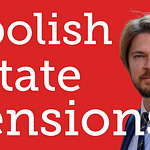In this Institute of Economic Affairs clip, Aymen Aulaiwi explains how Stalin's command economy functioned and why centrally planned socialist systems inevitably fail. He breaks down the mechanics of Soviet five-year plans, where Gosplan set production targets that cascaded down through ministries to individual factories, completely bypassing market signals and consumer demand. Aulaiwi describes how Stalin's obsession with heavy industry - driven by Marx's "fetishisation of industry" and fears of capitalist invasion - led to an economy that prioritised steel and coal production over consumer goods, creating a system where "I do not buy sheets of steel off a catalogue, but I do buy lamps and textbooks."
The discussion explores the three fundamental problems that doom all command economies: information asymmetries, soft budget constraints, and principal-agent problems. Using the example of a Newcastle café owner wanting to sell Dubai chocolate versus a Birmingham baker making poppyseed muffins, Aulaiwi illustrates Hayek's argument that economic information is too dispersed and localised for any central planner to understand. He explains how this connects to Marx's outdated labor theory of value, which ignores both the role of capital and consumer demand, treating products purely as embodiments of labor time rather than responses to market needs.
Aulaiwi reveals a striking contradiction at the heart of Stalin's "socialist" system - despite Marx's belief that capital was pure exploitation, Stalin actually focused obsessively on capital accumulation and investment levels, making him "literally a capitalist" who suppressed worker consumption to fund industrial expansion. The conversation demonstrates why socialist calculation is impossible without real market prices, and how even modern attempts to introduce "social costs" like carbon taxes face the same information problems that destroyed the Soviet economy. This clip provides a devastating Austrian School critique showing why socialist economics cannot work in practice, regardless of good intentions.











